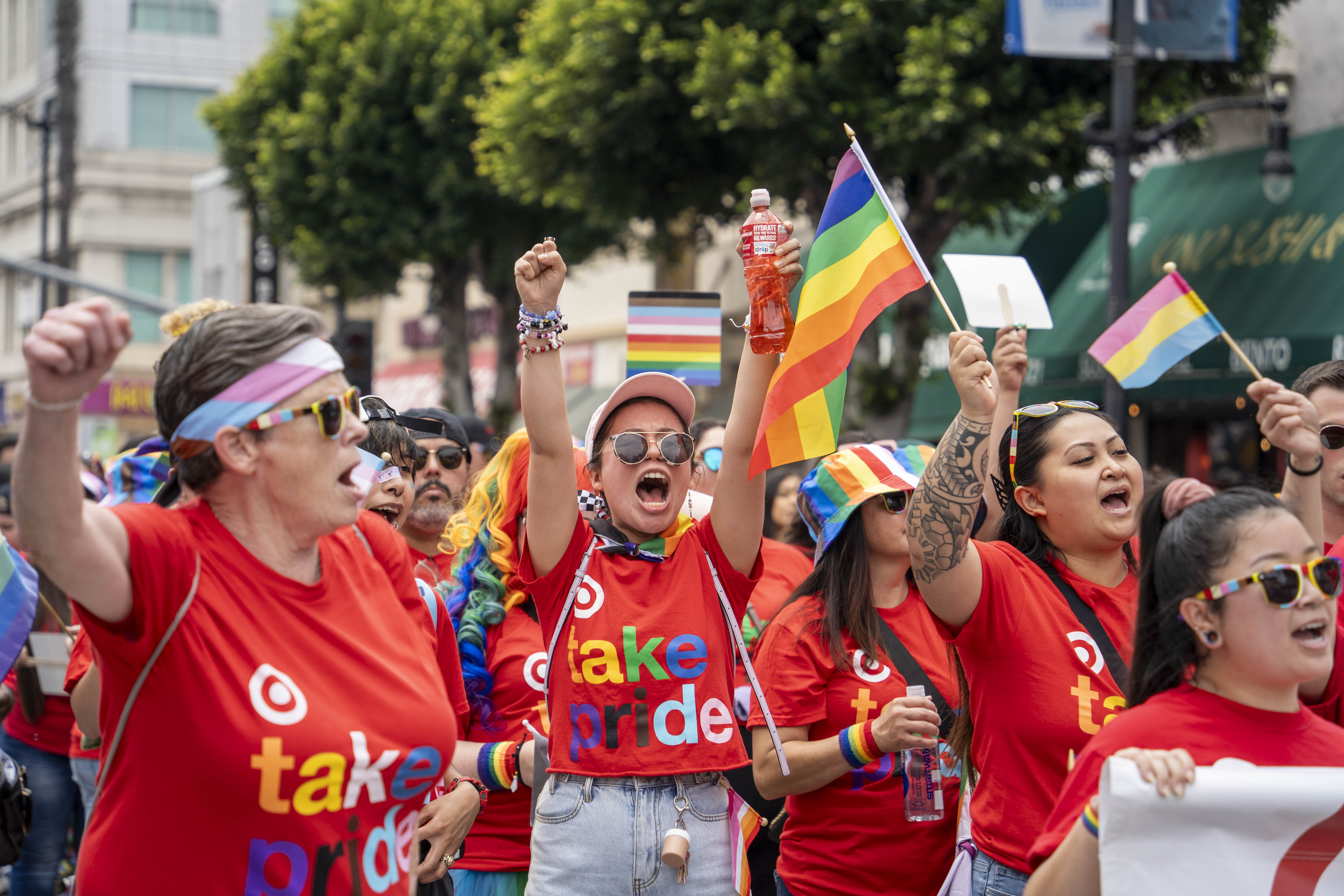Proposition 3 aims to guarantee right to same-sex marriage in state constitution
(Lindsey Murto/Design director)
By Felicia Keller
Oct. 30, 2024 7:02 p.m.
This post was updated Nov. 4 at 12:18 a.m.
California voters will vote on guaranteeing the right to same-sex marriage in the state constitution this November.
If passed, Proposition 3 would effectively repeal Proposition 8, which defined marriage as between a man and a woman in the California Constitution when it was passed in 2008. Despite Proposition 8 being struck down in a federal court in 2010 and officially overruled in 2013 – and Obergefell v. Hodges guaranteeing the right to same-sex marriage in 2015 – its language has yet to be removed from the California Constitution.
Matthew Craffey, former chairman of the Log Cabin Republicans of California – a conservative LGBTQ+ group – said the group was involved in the fight against Proposition 8 in 2008 and now supports the passage of Proposition 3.
“We’ve been very supportive of marriage equality,” he said. “We’ve definitely been extra supportive and happy with states that have done it legislatively, not just through the courts, because I feel like that’s a more powerful statement when you have the people behind it as well.”
Democratic presidential nominee Kamala Harris was also outspoken against Proposition 8 during her time as California’s attorney general, and in 2013 she instructed a clerk in Los Angeles to “start the marriages immediately.”
Though Proposition 3 would officially replace Proposition 8, it would not lead to any day-to-day change, said Christy Mallory, legal director at the Williams Institute, a UCLA Law center dedicated to LGBTQ+ research.
“It won’t actually change anything day to day for people, at least for right now,” Mallory said. “But, of course, (it) will remove those stigmatizing provisions from the constitution, which is very important symbolically, to show that that’s no longer good law. We’re going to remove bad laws from the books.”
Mallory added that Proposition 3 would also include language guaranteeing the right to interracial marriage, a right nationally established by the Supreme Court case Loving v. Virginia in 1967.
“It would remove that provision to ensure that people could get married regardless of both sex and race, so it also ensures a right under the California Constitution to interracial marriages,” she said.
Proposition 3 came about in relation to Dobbs v. Jackson Women’s Health Organization, which in 2022 ruled there is no federal right to an abortion under the 14th Amendment. Because Obergefell v. Hodges – the federal case protecting same-sex marriage – is currently upheld on the same amendment precedent, there are fears that the Supreme Court could also overrule this statute.
In Justice Clarence Thomas’ concurring opinion in Dobbs v. Jackson Women’s Health Organization, he stated that several cases, including Obergefell v. Hodges, should be reconsidered with the court’s new analysis of the 14th Amendment. Mallory said Loving v. Virginia also stems from the same precedent, so although Justice Thomas did not mention it, concern for it may have led to the inclusion of race in Proposition 3.

However, Craffey said he is not worried about Obergefell v. Hodges because other conservative justices have not indicated that they hope to take up the issue.
“None of them have indicated that same-sex marriage is on the table to be relitigated,” he said. “It’s not the same divisive issue that abortion rights has been in this country for 50-plus years.”
The two groups against Proposition 3, according to CalMatters, are the California Family Council – which did not respond to the Daily Bruin’s request for comment – and The American Council of Evangelicals. Opponents argue children should be raised by a mother and a father, and the measure would remove protections against “child marriages, incest, and polygamy.”
Mallory said the framework of which marriages are currently legal will not change because of Proposition 3.
“There’s no minimum age to marry in California, so to the extent they’re worried about minors getting married – they can. They have been,” she said. “That is not happening because of this amendment.”
Bruin Republicans, a conservative student organization, also opposes Proposition 3. Although a Bruin Republicans spokesperson declined an interview request from the Daily Bruin, they said in an emailed statement that they believe marriage is between a man and a woman.
Craffey said, barring some religious organizations, he is not aware of much conservative opposition to Proposition 3, citing the national Republican Party’s removal of anti-same-sex language from its platform this year.
“Culturally, I feel like there’s a lot of bipartisan support for this,” he said. “This isn’t the Republican or Democrat issue that this maybe would have been in a different time, and so I’m really happy to see that that’s where our party’s gone.”
Craffey added that the tide has shifted toward public support for same-sex marriage in recent years, fostering excitement among the older members of his organization.
“They’re incredibly emotional because when people were starting to go to meetings for this group in the late 1970s, the police would come into some of these meetings and arrest people,” he said. “For them, it’s incredibly emotional to see this success and to see that this is a uniting issue for both parties and for people that care to see that our relationships and our love for who we love is treated the same way as someone else.”
Los Angeles residents can vote in person Tuesday at Ackerman Union, Hammer Museum or De Neve Plaza, among other locations across the county. Voters can also submit a vote-by-mail ballot as long as it is postmarked by Election Day.
